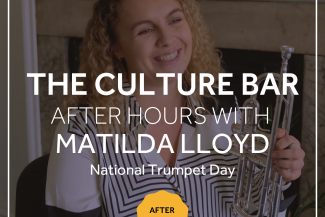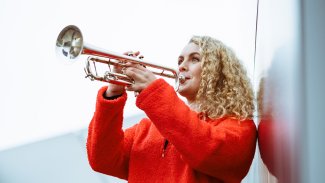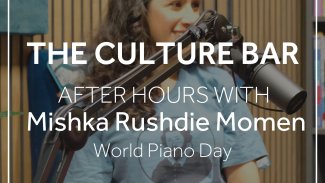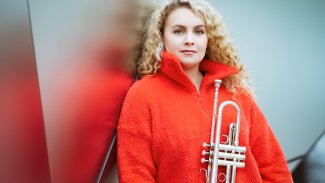The Culture Bar — After Hours: Matilda Lloyd
10/10/2023

After hours chat with British trumpeter Matilda Lloyd
In this Culture Bar Podcast, we are delighted to welcome Matilda Lloyd to the studio. To celebrate National Trumpet Day, we talk all about how she first discovered the trumpet, her favourite repertoire, what makes the trumpet so special and what’s next for the instrument.
Matilda was interviewed by HarrisonParrott’s Digital Communications Officer, Lauren O’Brien.
After Hours chats are a spin-off series from The Culture Bar, discussing issues relating more broadly to the arts and culture sector.
The Culture Bar is a podcast series created by HarrisonParrott focussing on conversations in culture and the arts.
Find us on Spotify, iTunes, Google Podcasts, YouTube, Podbean, Deezer, Stitcher, Pocket Casts and all good podcatcher sites.
Use #theculturebar or follow us on Twitter @_TheCultureBar to keep up with our latest releases.


